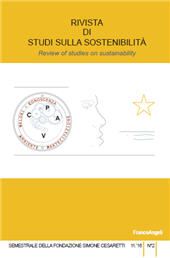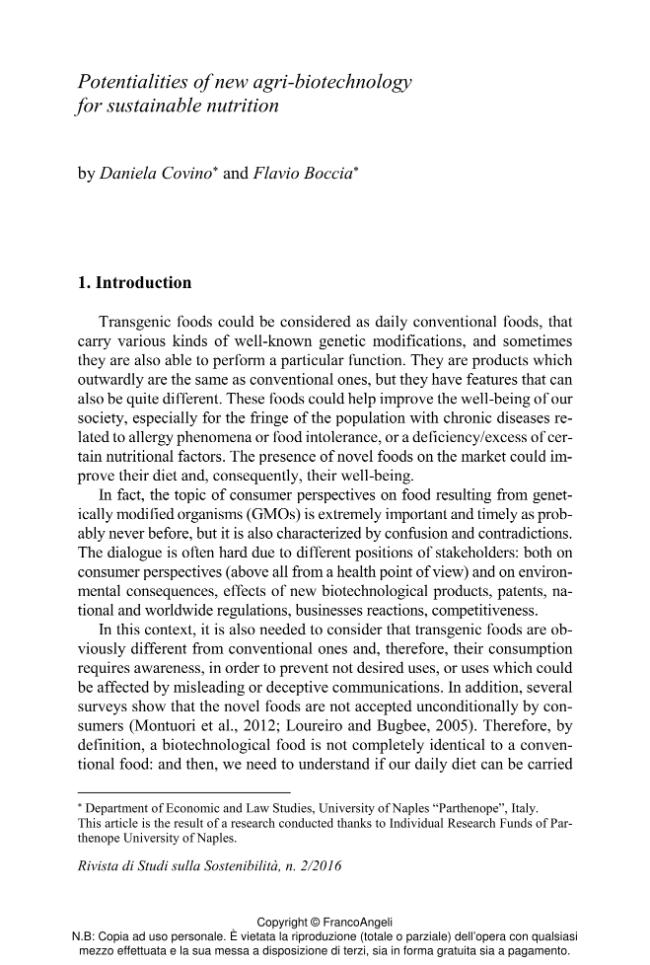Potentialities of new agri-biotechnology for sustainable nutrition
97-106 p.
I cibi transgenici potrebbero essere considerati come normali alimenti quotidiani, in grado però di apportare, grazie alle proprie caratteristiche genetiche di nuova generazione, contenuti nutrizionali specifici per particolari necessità alimentari dei singoli individui. Ma la considerazione che normalmente caratterizza tale genere di nuovi alimenti è di carattere totalmente diverso, spesso anzi molto osteggiato dall'opinione pubblica corrente. Scopo del presente lavoro è quello di porre attenzione al ruolo che in potenza potrebbero avere i cibi geneticamente modificati di nuova generazione nel miglioramento, dal punto di vista della sostenibilità, dei regimi dietetici in termini di benessere e salute del consumatore finale. Restano tuttavia aperte numerose questioni relative alla loro equivalenza sostanziale ed accettabilità da parte della collettività. [Testo dell'editore].
Transgenic foods could be considered as daily conventional foods, that carry various kinds of well-known genetic modifications, and sometimes they are also able to perform a particular function. They are products which outwardly are the same as conventional ones, but they have features that can also be quite different. These foods could help improve the well-being of our society, especially for the fringe of the population with chronic diseases related to allergy phenomena or food intolerance, or a deficiency/excess of certain nutritional factors. The presence of novel foods on the market could improve their diet and, consequently, their well-being. The aim of the present work is to focus on the potential role of second generation genetically modified foods of enhancing more sustainable dietary regimes in terms of welfare.
Functional transgenic food may be defined as daily conventional ones, carrying modifications in nutrients content, capable of performing as dietary supplement. Nutritional characteristics may strongly differ from usual foods in our dietary regimen in terms of vitamins, fat, gluten and so on. It is well accepted that such a kind of food might contribute to improves societies' welfare, especially for people affected by chronic disease depending on allergies or intolerance, deficiency or surplus of specific nutritional factors. Still, several issues are to debate in terms of their acceptability and equivalence. [Publisher's Text].
-
Articoli dello stesso fascicolo (disponibili singolarmente)
-
Informazioni
Codice DOI: 10.3280/RISS2016-002009
ISSN: 2239-1959
MATERIE
PAROLE CHIAVE
- Consumatore, marketing, OGM, salute, sicurezza
- Consumer, health, GMO, marketing, safety



